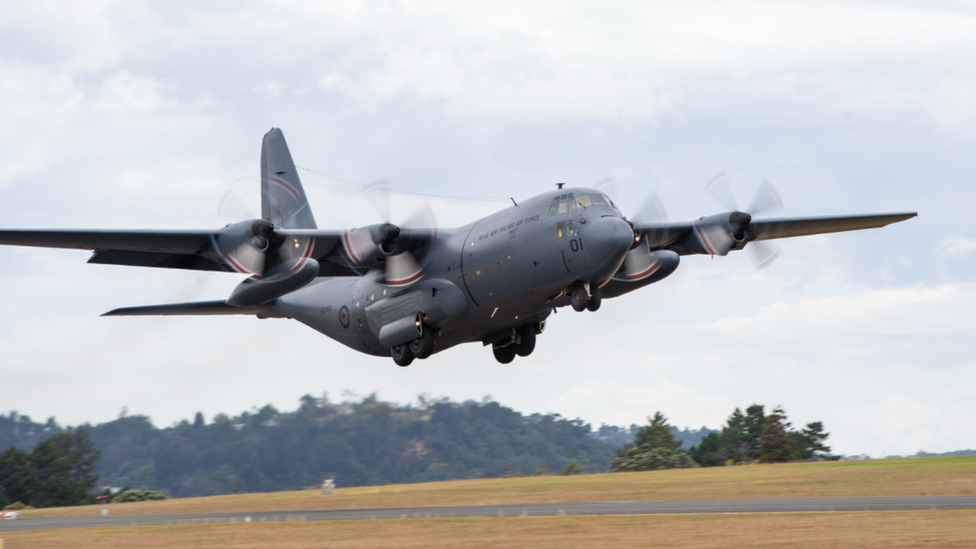Tonga: Survivor tells of sea escape from tsunami-struck island
- Published
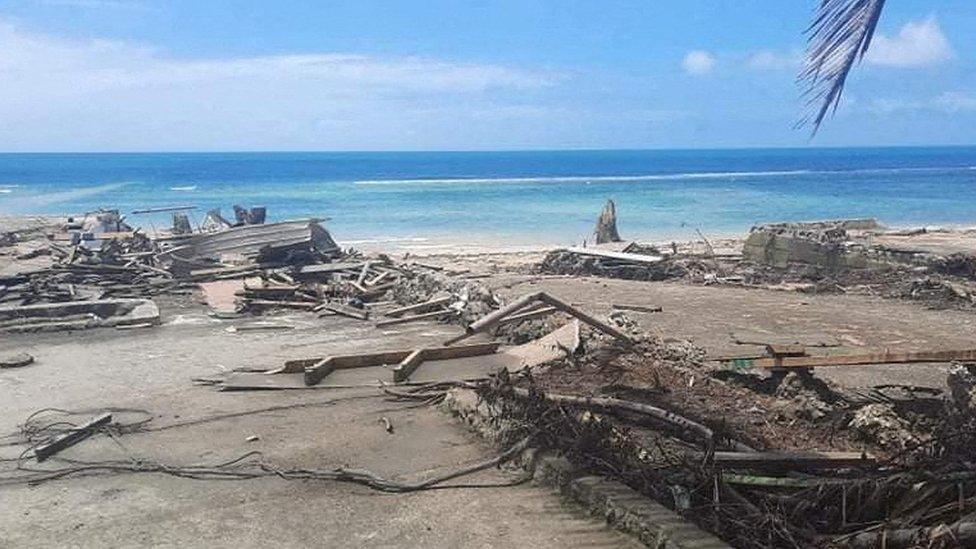
Debris litters the beach in Nuku'alofa, Tonga, after the tsunami - near Atata island where Mr Folau was
The tale of a man who says he floated in the sea for more than a day to survive the tsunami which hit Tonga has captured global media attention.
The volcanic eruption and tsunami hit the island nation on Saturday, sweeping Atata local Lisala Folau out to sea.
Mr Folau told the BBC that he held on to a floating log during his 27-hour ordeal at sea, before finally reaching the shore again.
Tonga has confirmed three deaths though the extent of damage is still unknown.
Mr Folau, 57, told the BBC's Newsday programme he was scared when he saw the wave approach, but "I had my faith in God he would save me".
"When I was in the water I remember going under eight times. My legs are disabled and don't function as well," he explained. "The sea kept twirling me and taking me underwater."
He said he then managed to grab hold of a floating log.
"I could hear my son calling from land and I didn't want to answer because I didn't want him to swim out to find me... I just twirled while holding onto the log," Mr Folau said.
"What came into [my] mind is at sea there is life and death. Until you reach the shore, then you know if you're alive or dead."
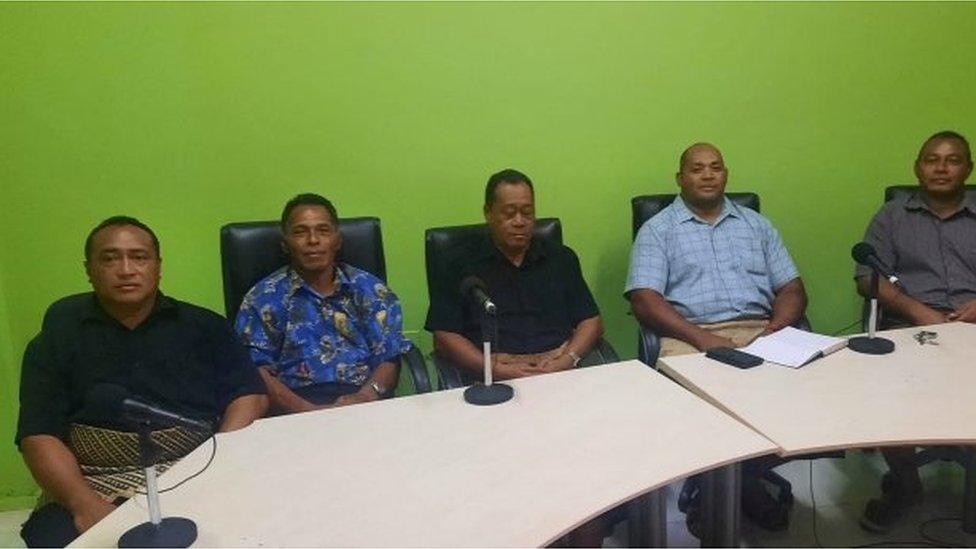
Lisala Folau (second from left) with other Atata survivors at a radio interview on the main island
Meanwhile, aid has now started trickling in with more governments deploying ships and flights to the country.
Communications have been crippled, with the only undersea cable that connected Tonga to the outside world ruptured in two places.
A New Zealand ship which arrived at Tongatapu, the main island, on Friday was the first foreign major aid ship to land. It was carrying 250,000 litres of water and has a desalination plant on board which can produce up to 70,000 litres of clean water every day.
The UN says clean water supplies are the top priority for the Pacific nation.
However, authorities also revealed on Friday that water testing on the main island showed it is safe for drinking.
"Some communities on Tongatapu have however lost access to drinking water. Drinking water is being delivered to the outer islands," said the New Zealand government.
It added that despite emerging reports of missing people, the death toll remained at three so far: two Tongan nationals and a British national.
Australia has deployed its largest ship, the HMAS Adelaide, which set off for Tonga on Friday and is expected to arrive mid-next week. The ship can carry helicopters which can then be deployed to take supplies to Tonga's smaller outer islands.
The UK announced on Friday that it was also redeploying its vessel, HMS Spey to Tonga, and had already sent aid supplies with the Australian ship.
"The UK will work closely with Australia and New Zealand to assist the recovery effort in Tonga and stands ready to support our long-standing Commonwealth partner," said UK Defence Minister Ben Wallace.
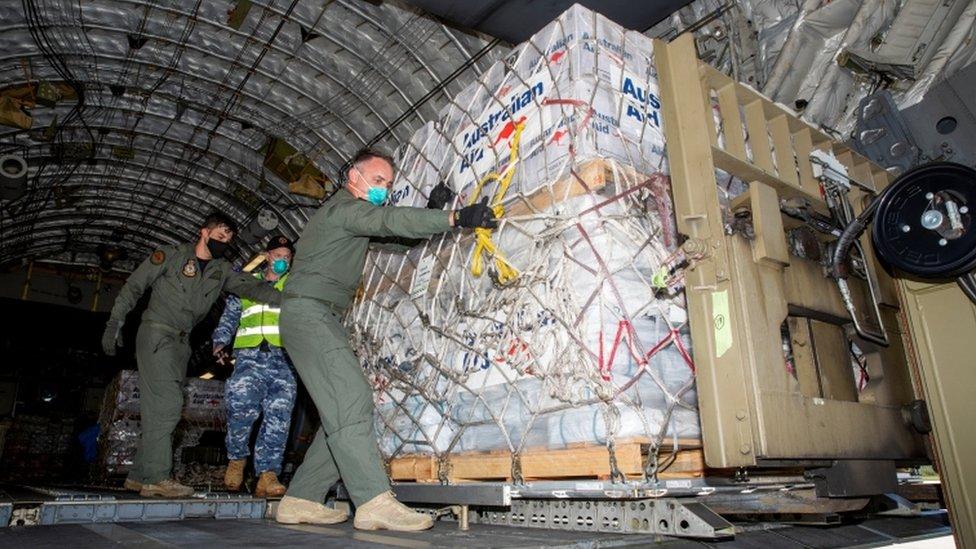
Australian Defence Forces members have already brought some supplies into Tonga
The international response was held up in the first few days after the explosion, because a blanket of volcanic ash made the airport's runway on Tongatapu unusable.
Hundreds of volunteers spent days manually clearing away the ash so that emergency aid planes could land.
The first two flights from New Zealand and Australia landed on Thursday, bearing pallets of drinking water, desalination tools, hygiene, shelter and medical kits as well as telecommunications equipment.
Efforts have been made for contact-less delivery, as Tongan authorities have expressed concern about Covid being imported into the virus-free nation - it has only had one confirmed case, which was recorded in October 2021.
On Thursday, a second Australian plane was turned back mid-flight after a crew member on board tested positive for the virus.
The naval carriers are expected to bring far bigger quantities of aid.

Tonga's deadly tsunami

Meanwhile, communications with Tonga are slowly being restored through basic telecommunications networks.
The volcano eruption severed the only internet cable connecting the island of 110,000 people to the world. Up until Wednesday, all information about the disaster had come from a few organisations with satellite phones on the island.
Aid politics
Countries like China and Japan are also sending aid.
Japan deployed one of its own military planes on Thursday to deliver supplies.
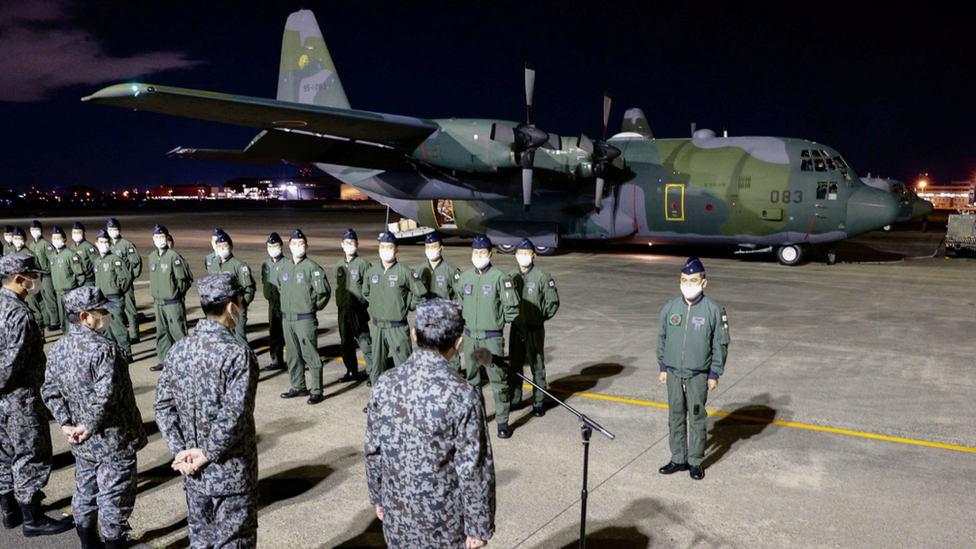
Japan has prepared a Hercules carrier to bring aid to the island
China has also pledged $100,000 (£73,000) in relief cash assistance and a batch of emergency supplies.
"Going forward, China will continue to provide assistance in cash and supplies based on the situation and Tonga's needs," said foreign ministry spokesman Zhao Lijian in Beijing on Thursday.
Tonga is one of the key Pacific island nations, in an increasingly-contested region which has seen an influx of loans and donations from China.
China is now the second-largest donor of foreign aid in the region behind Australia, analysts say.
Earlier this week, former Australian prime minister Kevin Rudd tweeted: "Australia must be the first and foremost giving assistance to Tonga. Otherwise China will be there in spades."
How an Australian radio station is bringing together Tongans as they wait for news of loved ones
Related topics
- Published2 February 2022
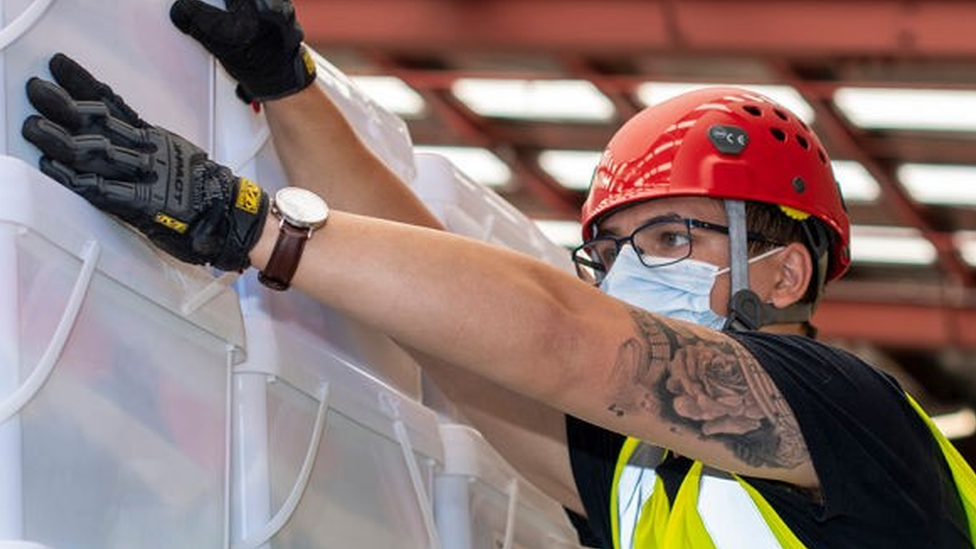
- Published21 January 2022
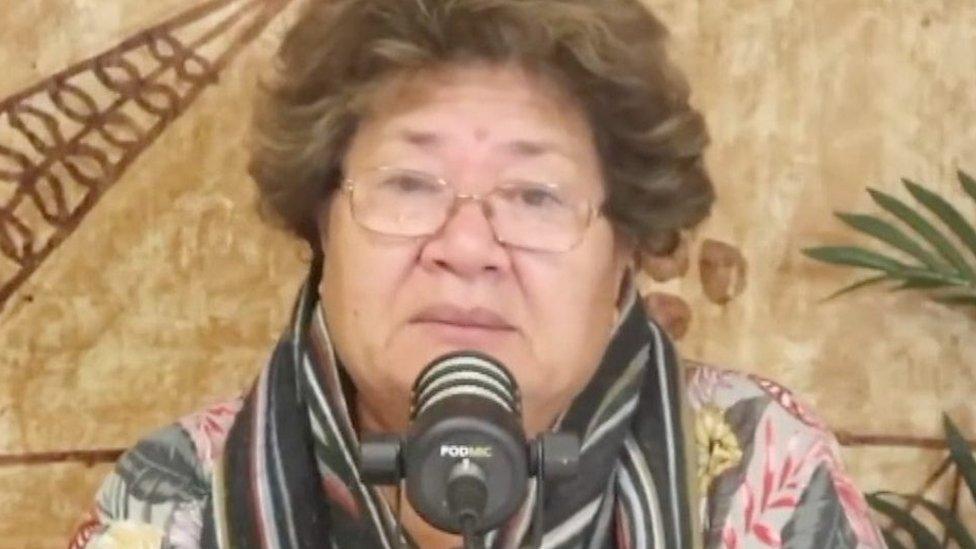
- Published20 January 2022
